Copyright 2012 by
The Curators of the University of Missouri
University of Missouri Press, Columbia, Missouri 65201
Printed and bound in the United States of America
All rights reserved
5 4 3 2 1 16 15 14 13 12
Cataloging-in-Publication data available from the Library of Congress.
ISBN 978-0-8262-1977-0

This paper meets the requirements of the
American National Standard for Permanence of Paper
for Printed Library Materials, Z39.48, 1984.
Design and composition: Jennifer Cropp
Printing and binding: Thomson-Shore, Inc.
Typefaces: Minion and Myriad
ISBN: 978-0-8262-7279-9 (electronic)
Preface
African American officeholders dependent upon either white leadership or votes face a threshold of how much tolerance Caucasians would have regarding race. When minority politicians cross the imaginary line by showing too much interest in what whites will tend to interpret as pandering to African American causes and interests, a loss of white support results in most cases. In other words, a threshold for minority matters exists, and crossing it has consequences. A parameter of this in action occurred in Chicago after the election to and during the four terms in the House of Representatives of Arthur Wergs Mitchell. For him in this particular case, a nomination to run in 1934 had come from Pat Nash and Ed Kelly's Democratic Machine, and the black congressman's four consecutive election victories had resulted from pliancy by the minority candidate. In his first victory, it was overwhelming white support and just enough African American votes that resulted in the unseating of a three-term Republican incumbent and civil rights activist, Oscar DePriest. Mitchell then held onto the House seat by once again, defeating the former congressman in 1936, and by winning in 1938 and 1940 over two other black foes. Opportunities had come to Mitchell because of Chicago's Democratic bosses' anger and frustrations with the way DePriest had conducted himself in Congress. To their judgment and to the First District's white working-class electorate generally, the Republican incumbent had fussed altogether too much about racial discrimination and in the process had upset Franklin D. Roosevelt by agitating and voting against New Deal legislation. While in Congress, in contrast to the record of the black Republican, Mitchell managed for the better part of his tenure to retain favor with white voters and Windy City power brokers; he retained their support by proclaiming often and demonstrating that his only interests were service to his constituents and to the president. In fulfilling these commitments to his immediate base of constituents as the only African American in Congress, Mitchell disavowed any role as the Negro representative on Capitol Hill. He continued to serve with conspicuous and pliant dependence and allegiance to the Machine for his first three terms in the House; in his fourth term, however, he defiantly dared to cross the threshold of willing cooperation with demonstrated degrees of freedom and some tempered interest in civil rights. For the four-term lawmaker, a sudden movement from the course set out for him resulted in the Machine removing the incumbent from the Democratic ticket in 1942an action that now mattered little to Mitchell because he had already laid down retirement plans and had set a personal goal of becoming an elder black statesman. William L. Dawson, a man with an established record of obedience, silence, pliancy, and unassertiveness on racial issues, replaced Mitchell on the ballot. A succession of Chicago bosses remained solidly behind Dawson for some thirty years until his death; he retained their support because of a clear understanding on his part to stand behind the threshold of defiance.
Meanwhile, in Harlem, a totally different kind of African American elected official emerged. The Reverend Adam Clayton Powell Jr. won and held firmly onto his Gotham congressional seat because of two factors. His protests and attacks against racism earned him passionate loyalty and made him a most admired public figure in an overwhelmingly black district. Unlike Chicago, New York City's decentralized municipal setup meant neither individuals nor political parties were ever strong enough to exercise control over or undermine a popular political maverick like Powell, who consistently demonstrated a strong determination to adhere to a personal agenda that included the black lawmaker's unwavering disparagement for racists and all programs with discriminatory features. And his constituents never rescinded their loyalty to him; no matter the outlandishness of Powell's behavior and actions, Harlem voters gave their beloved congressman committed support and encouragement, and they provided him with huge reelection pluralities. In complete contrast to the pair of Chicago lawmakers, the Harlem politician moved freely without fear of constituent consequences for showing unbridled outspokenness about or criticisms of American injustices.
Herein rests the focus of this study. From the 1966 election of Edward Brooke to the United States Senate by the electorate of Massachusetts, to the popularity of Colin Powell and Barack Obama many decades later, African American public figures have enjoyed either more acceptability to white majorities or less favor. For black leaders like Jesse Jackson and Al Sharpton, white voters have tended to show fear and apprehension. When wins have come to blacks in mixed-race jurisdictions, these successes have occurred because of the existence of enough salt-and-pepper support to ensure victories. In almost every case, successful pursuits for office had occurred because African American office seekers were careful to develop and follow a formula of downplaying racial issues to such degree as not to threaten or take exception to the status quo of privilege and endowment historically enjoyed by America's white majority. In referring to these efforts at avoidance, one school of political scientists has named the practice of skirting race deracialization. Some of these political thinkers have even suggested that adopting a strategy of evading racial issues altogether has great potential for becoming a winning recipe for convincing enough white voters to insure electoral victories. Embedded in this study are examinations of ten randomly selected examples of black politicians who, through their obvious adoptions of what amounted to reassuring strategies for whites, successfully won enough white votes to obtain various elective offices. The focused selectees include a pair of United States senators, two minority members of the House of Representatives, five mayors, and a governor. Three of the victors were elected to office as Republican candidates, while the other seven enjoyed successful candidacies as Democrats. The introductory chapter is a breakdown of candidates who primarily directed their appeals at African American voters and a group of minority politicians who tailored color-neutral campaigns. The first chapter also emphasizes and shows the many shifts and nuances involved in politics and race.
The decision for Barack Obama's inclusion as a concluding separate chapter was obvious once it became abundantly clear that a classic example of possible success by an African American candidate for the nation's highest office was unfolding with white support and votes. If anything, with the presidency at stake, Obama's racial identity became a more integral part of discussions about his bid for office than this factor had ever been for ten predecessors' pursuits of less-important positions. Yet, the U.S. Senator from Illinois, like the others, pandered as little as possible to black voters. Obama spoke in generalized terms of a need for change with positive effects for all Americans, and was most skillfully adroit at galvanizing solidarity behind issues of mutual interest and immediate urgency to the general electorate. The concerns that he emphasized in speeches included his intentions to end a very unpopular war in Iraq; a restoration of America's sagging global prestige; a planned provision of sustainable and equitable health-care; a removal of educational deficiencies; and clearly most importantly of all, a resuscitation of a suffering national economy with its mounting unemployment, soaring home foreclosures, declining property values, and falling stock prices. In other words, Obama as a candidate for president in 2008 ran in the tradition of liberal Democrats, and not specifically as an African American. By adhering as much as possible to this race-free strategy, he ably capitalized upon the unpopularity of President George W. Bush and other Republicans. In essence, therefore, Obama's great victory mirrored to some extent the earlier victories by ten other victorious African Americans had also won over enough white voters to gain elective offices. Thus, in what the author initially conceived as a study to determine how a group of randomly selected minority candidates had won with the help of whites, the focus surprisingly turned to the most-watched presidential election of all time in order to ascertain if it adhered to what had worked so well in the past for a mixed group of ten other African American politicians in need of appealing to those outside their race for support.

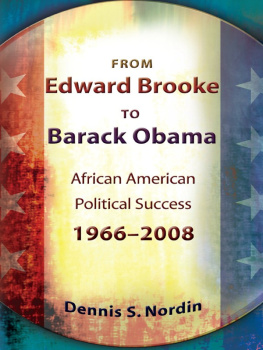


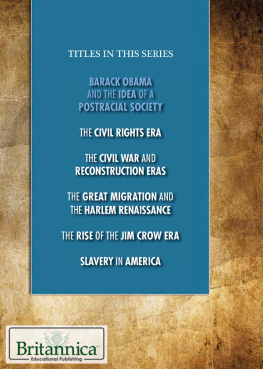
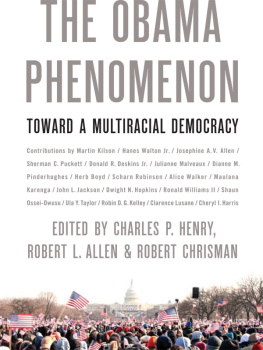
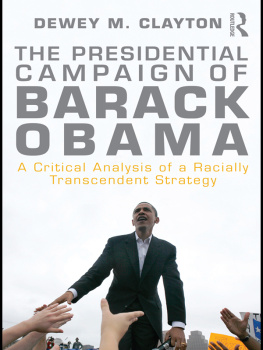
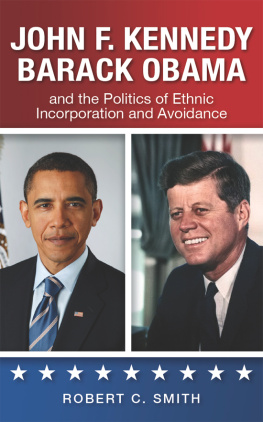
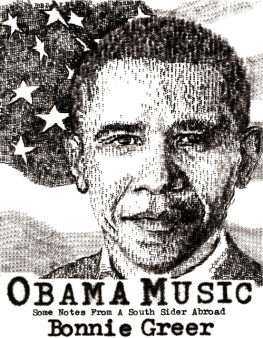
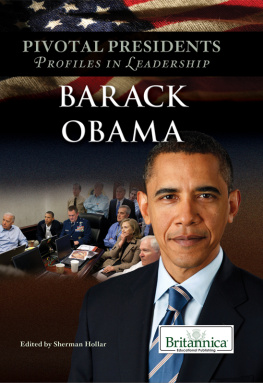

 This paper meets the requirements of the
This paper meets the requirements of the